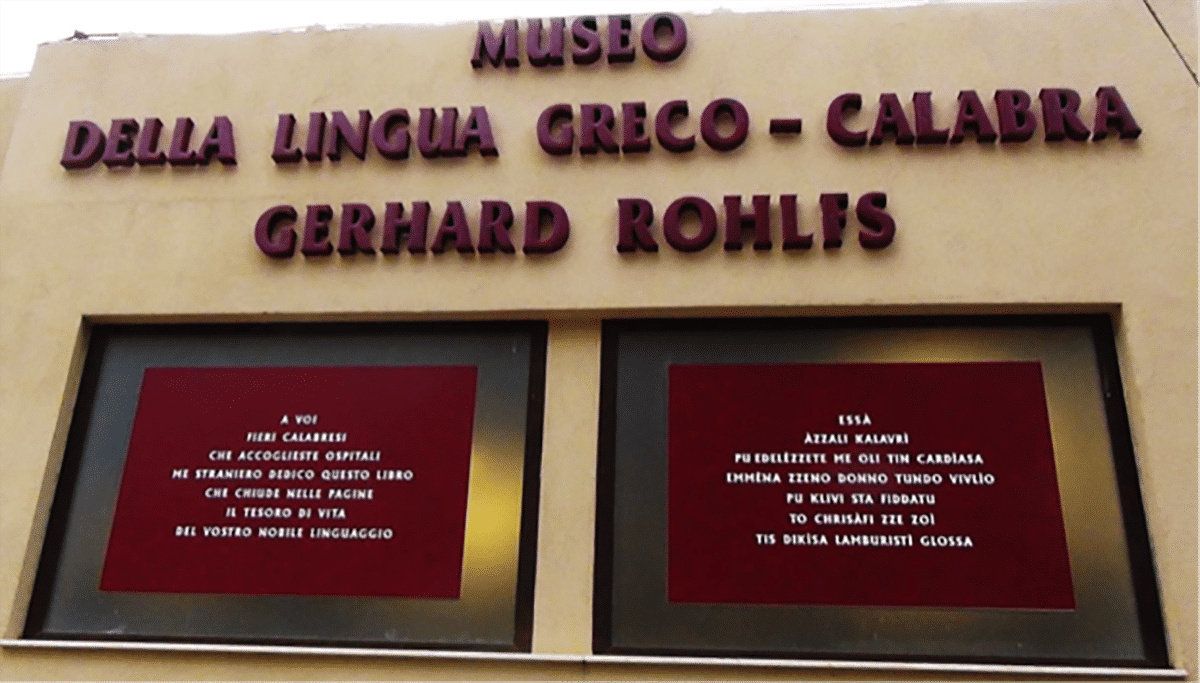Inaugurated in 2016 and located at the entrance to the village of Bova, in a highly symbolic spot-just where the English artist and traveler Edward Lear immortalized a glimpse of the village in the 19th century-the “Gerhard Rohlfs” Museum of the Greek-Calabrian Language is a unique cultural center, entirely dedicated to the enhancement and protection of the linguistic and intangible heritage of the Greeks of Calabria.
The museum is named after the famous German linguist Gerhard Rohlfs, who since 1924 devoted himself to the study of Greek-Calabre, arguing with conviction for its Magna Graecia origin. His extensive research, conducted in Hellenophone villages such as Bova, Gallicianò and Roghudi, contributed to the recognition of the extraordinary historical continuity of the Grecanic language, still spoken today in the most remote territories of southern Aspromonte.
The exhibition itinerary unfolds in six rooms, each named after important scholars of Grecanic culture. Here the visitor can explore the history, grammar, sounds and transformations of this ancient language, thanks to historical documents, photographs, ethnographic objects belonging to Rohlfs, and modern audio-visual installations that allow visitors to listen to Greco-Calabrian, offering an immersive and engaging experience.
Of particular note is the Franco Mosino room, where one can investigate the long evolutionary path of the Greek-Calabrian language, from the classical world to the present day, including through historical reconstructions and archaeological and paleographic data that testify to the Byzantine influence and the many foreign dominations that have marked the cultural history of the area.
The museum also holds a valuable collection of objects of rural life and traditional tools of local culture, enriching the visit with a concrete look at the everyday world of Hellenophonic communities. The scientific approach, combined with the popular intent and the strong territorial identity, makes the “Gerhard Rohlfs” Museum an indispensable place for those who wish to understand the deep soul of Greek Calabria and its millenary linguistic heritage.

